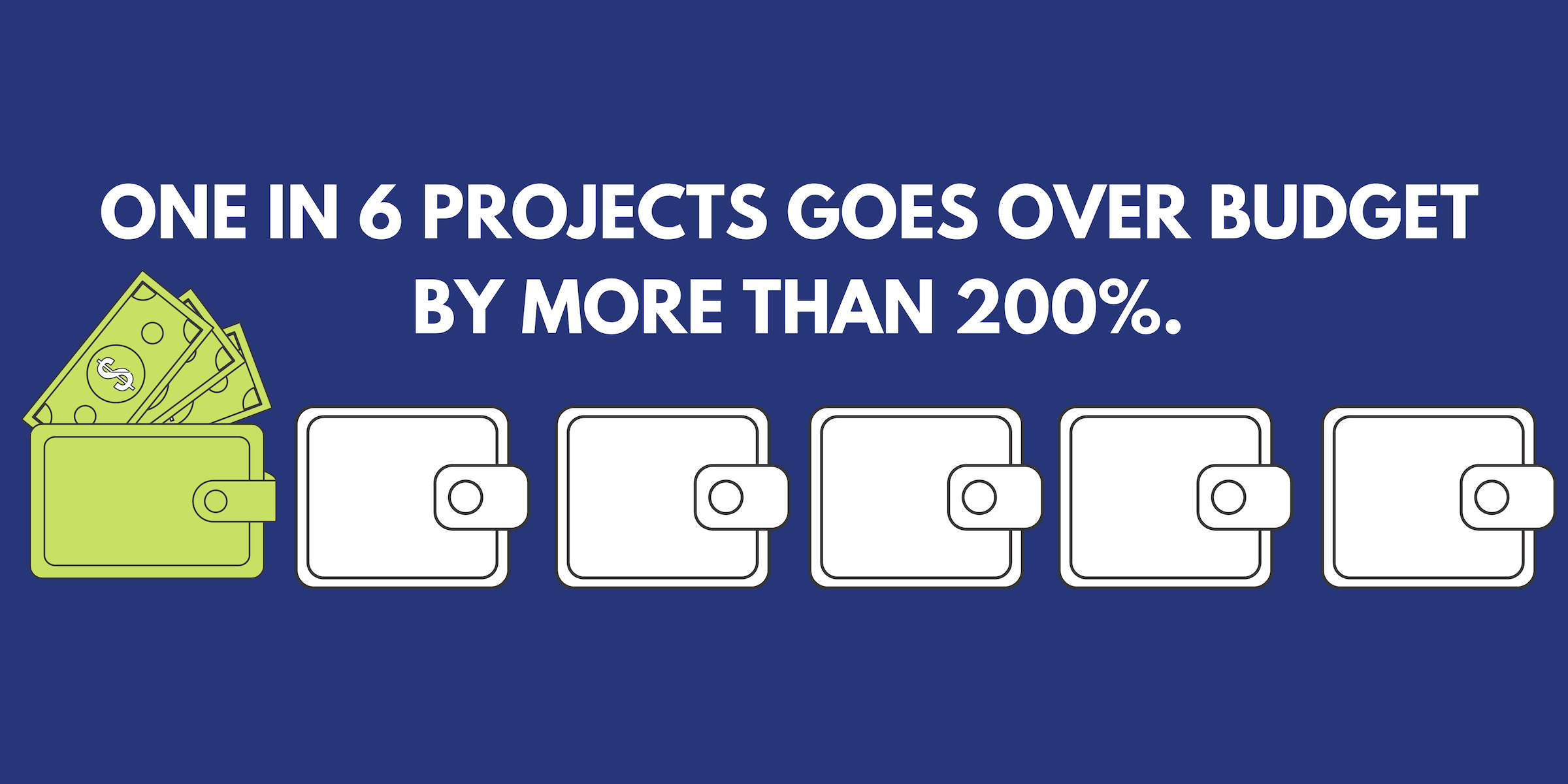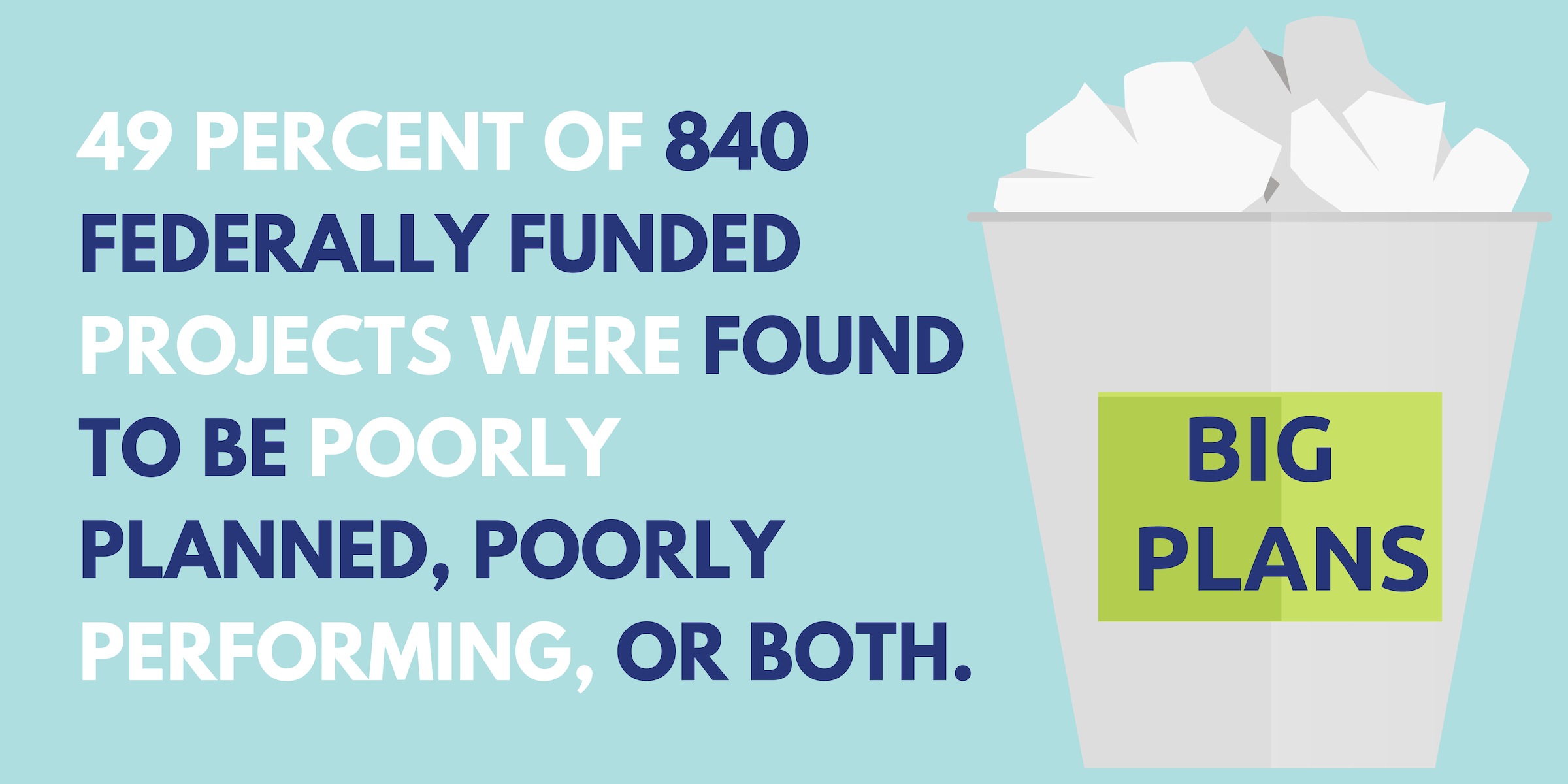![]()
We’ve all been there. Maybe it’s a class project; maybe an initiative at work. Either way, a small team is assigned a task.
Individuals break the task into smaller tasks. Work is divvied up. And if you’re lucky, there hasn’t been a quarrel yet.
As the small tasks are slowly hammered out, questions emerge. The instructions may not be quite as clear as they once seemed.
Team members chime in ideas about what would make this project better. Soon you’re all working on something that wasn’t even part of the original instructions. A deadline looms.
Welcome to the world of project management.
If you have the unique blend of technical proficiency, people skills, tact when dealing with disagreements, strategic thinking, and organizational skills, you might just make a great project manager.
It’s not an easy job. And it can be a thankless one, but project management positions are crucial in many industries and sectors.

Project managers are employed in non-profits, for-profits, and public settings. They typically lead teams of between 3 and 10 people. And they function as a liaison between higher management and a team accomplishing a task.
They may be the single most important position within the actual operations of a corporation. And luckily, project management today is much more organized than the school project explained above. Project management has evolved into a science of its own, with experts in a wide variety of project management styles.
If you think you have what it takes — or want to learn more about what you can do with a project management degree — be sure to keep on reading below.
If you already know you want a project management degree, be sure to check out MBACentral’s ranking of the best online project management MBA degree programs today.
In this guide we’ll be covering the following topics:
- What is a Project Management MBA?
- Can I Get a Project Management MBA Online?
- How Do I Gain Admission to a Project Management MBA?
- What Can I Do With a Project Management MBA?
- How Much Can I Earn With a Project Management MBA?
What is a Project Management MBA?

Project management MBAs are a way to blend one of the most versatile graduate business degrees with a knowledge base in one of the most in-demand management styles. While core coursework within an MBA introduces students to the basics (well, graduate-level basics) or many core business disciplines, project management concentrations provide additional courses in one focus area.
Project Management MBAs typically require between 1 and 3 years of study. This may seem like a large range. But it depends on whether the MBA you select is accelerated (one year), full-time (two years), or part-time (three years or more).
While scouting around for MBA programs, you may have come across the term executive MBA. And while executive MBAs are also great degrees to consider, they typically don’t focus on project management (or have any concentrations for that matter). Executive MBAs are typically shorter in duration and meant for professionals with 5 or more years of managerial experience. “Traditional” MBAs, on the other hand, spend more time introducing a range of topics and are meant for those earlier in their career. This increased program length allows time for concentrations like project management.
A project management MBA can be a great boon to those early in their career. Most disciplines have project managers over a group of team members. The best project managers generally have some experience in the hands-on aspects of the team they’re managing. If you’ve worked in a team for several years and think you have what it takes to move up and begin managing a similar team, a project management MBA is a no-brainer!
Looking at the component parts of a project management MBA, students will likely take many of the same courses no matter what program they attend. This is because core courses within MBA programs don’t tend to vary that much.
Common core courses include:
- Microeconomics for Management
- Marketing Management
- Data Analytics
- Managerial Finance
- Human Resouces
- Financial Accounting
- Operations Management or Logistics
- Strategic Thinking
- Managerial Accounting
- Leading Teams or Project Management
Specialization courses — in this case in project management — do tend to vary quite a bit. Most programs with a project management specialization will include 3-5 courses in the subject matter. They may be quite different courses from what other schools offer. So if you want to learn a specific aspect of project management within an MBA, it’s best to scout around at the specific courses offered by the program you may be interested in.

Some of the most common specialization courses on project management within MBAs include:
- Risk Analysis and Management
- Planning and Resource Management
- Project Communications Management
- Global Project Management
- Advanced Project Management
Additionally, some project management MBAs allow additional specializations within one type of project management. Common types of project management MBAs include the following.
- Architecture or Engineering Management
- Construction Management
- Real Estate Development
- Transporation Management
- Sustainability Project Management
Think you want to check out your options? Be sure to check out MBACentral’s ranking of the best online project management MBA degree programs today!
Can I Get a Project Management MBA Online?

Master’s in business administration degrees are some of the most widely offered online degree types. While not all MBA programs offer an online component, there are hundreds of schools to choose from when considering an online MBA. Some online MBA programs are from some of the top-ranked business schools in the country. Some online MBAs are much more affordable than most in-person counterparts. And some online MBAs offer a much greater degree of flexibility than in-person degrees.
If you’re considering an online MBA degree –particularly if you have never taken a course online — there are a few terms you’ll want to know.
Sychronous versus Asynchronous Online Courses describe two common modes of delivery within online programming.
Synchronous online courses meet at a set time every week. All students log into a virtual portal together, and classmates and professor communicate in real time.
Asynchronous online courses allow students to log in at any time. There are often pre-recorded videos, quizzes, and learning activities. While you aren’t communicating with your entire class at once, there are often forums, chatrooms, and many ways to schedule meetings with your professors. While asynchronous courses allow students to log on at any time, they still have due dates for assignments. You just don’t have to attend class at a set time each week.
Two other terms you should know include hybrid programs and 100% online programs.
Hybrid-delivery programs require some on-campus or in-person meet ups. There’s a massive range to what hybrid means. With some hybrid programs meeting every weekend and offering online courses during the week, and some hybrid programs just meeting once a semester or year. If a program does not say that is 100% online on their program page, they are likely hybrid. But don’t let this discourage you if you’re seeking a primarily online degree. Many hybrid progarms meet in person very seldom.
100% online programs are exactly what they sound like. They often require no in-person meet ups throughout any of the courses. And many don’t even require in-person orientation or graduations. If you truly want to fit a degree around your current living situation and work on 100% of your degree from home, a fully online degree may be the way to go.

While online degrees have gained noteriety and popularity in recent years, they aren’t for everyone. Some of the most common negatives about online degrees include the need to be a self-starter to a greater extent than in an in-person program, and an inability to “get to know” classmates and professors.
There are many positives about online degrees, however. These include lower program prices, and being able to keep your place of living and job instead of moving to the location of your program.
Think you’re interested in an online project management MBA? Be sure to check out MBACentral’s ranking of the best online project management MBA degree programs today!
How Do I Gain Admission to a Project Management MBA?
Project management MBAs are at their heart just MBA programs with some additional coursework in project management. This means that admissions to project management MBAs are the same as applying to a general MBA.
While this may vary based on the programs you are applying to, generally MBAs have the following requirements for admission:
- Transcripts
- References
- Essays and Statement of Purpose
- GMAT Scores
- Information on How You Plan to Pay
Transcripts are used to verify that you hold a bachelor’s degree from a regionally accredited institution. In some programs, transcripts will also be used to verify that you made above a certain GPA in your undergraduate studies. Check out the admissions requirement page on programs you are interested in to see if there is a minimum GPA requirement. Most commonly this requirement is for students to have over a 3.0 cumulative GPA. In this most competitive programs this requirement may be 3.25 or 3.5.
References are used to determine your character, skills that may not be elsewhere on the application, and to fulfill a work experience requirement (if there is one) for the program you are applying to. For traditional (non-executive) MBA programs, one year of work experience is generally required.
Essays and a statement of purpose are required by many — though not all — MBA programs. These sections of the application will likely be familiar from having filled out undergraduate admissions. Take time to pass your answers by colleagues, friends, family, or admissions trainers to ensure your best foot is forward.
The GMAT standardized test has traditionally been the standardized test for entry into MBA programs. Today that is still largely the case, but slowly changing. A minority of programs will also accept a GRE or LSAT scores. Many programs have also done away with their standardized test requirements.

If you’re interested in attending a school that does not require a standardized test score for entry, be sure to check out our ranking of the best no-GMAT MBA degree programs today!
Finally, many schools will work with you to ensure you have your financial situation figured out. Though this should ultimately be one of the first things you look at when considering MBA programs.
MBA programs can be surprisingly affordable, or some of the most expensive programs out there. So make sure to do your homework on how much the programs you are interested in cost.
Once you’ve determined a program you’re interested in, there are a number of options for funding. Filling out the federal financial aid application (FAFSA) early in your application process enables you to take out as much as the cost of the program in federal student loans. These loans have additional protections and lower interest rates than most private loans.
Other common funding practices include aid from employers, self-pay from the applicant, and the use of scholarships to fund schooling.
Do you already know enough to know you’re interested in a project management MBA? Be sure to check out MBACentral’s ranking of the best online project management MBA degree programs today!
What Can I Do With a Project Management MBA?
MBA program graduates are found at nearly every level of most large organizations. From entry-level analyst positions through executive positions, MBAs are a truly versatile degree.
In a sense, this means the answer to the question above is, “almost anything to do with management and business”. MBAs are sought in nearly every managerial position within organizations. They’re also the single most popular degree type among the CEOs of America’s largest companies.
With that said, project management MBAs do help to prepare graduates for specific roles. Namely, project management MBAs prepare future project managers.
While many aspects of project management remain the same across industries and employers, there are some key differences.
Some of the most common industries in which project managers find employment include:
- Engineering Settings (including software)
- Construction Settings
- Real Estate Settings
- Transporation Settings
- And Sustainability Settings
We’ll progress through each of the above to provide you with insights into employment opportunities, pay, and descriptions of what a day is like in the above jobs.

Engineering project managers encompass perhaps the largest single group of project managers. Engineering firms were the birth place of many of the hallmark management styles we think of as project management.
These management styles are particularly well suited to software development and digital services. Agile, the most popular project management framework provides an iterative model meant to present a minimum viable product and continually hone this offering with input from users.
This means project managers within engineering and software settings often follow a data-driven pattern in their work. The stages of the agile method include:
- Plan
- Sprint
- Ship
- And Repeat
The planning stage helps to determine the scope of the next project, what components are central to project success, as well as to incorporate feedback from the last project (usually from end users).
Sprints, are short, structured periods in which a team works together to build a specific element.
“Shipping” a product means getting it to end users. This may involve providing an update for an app, or physically delivering a product or service. In this stage, information is gathered from end users and prolific testing occurs.
And then the process repeats, including the lessons learned from the last cycle.
If you enjoy building things in a structured way, collaborating with team mates, and being in a data-driven organization, an engineering-centered project management role may be for you.
The average salary for engineering project managers is currently $136,244.
Construction project managers often follow quite different managerial protocols from software managers. Settings in which a construction project manager may work may include an architecture firm or “on the ground” at a construction site. Construction project managers are also sometimes called site supervisors.
Work in a construction setting involves a great deal more consideration of logistics, scheduling, safety, and daily coordination between parties. Teams are likely bigger, and what is being built is physical (subject to the weather, logistical concerns, and what have you).
A project management education teaching proper protocols for tracking time, cost, and quality control are all essential to quality construction project managers.
The average salary of construction project managers is $93,584.
Real estate project managers may go by the names of real estate developer or site supervisor. These project management professionals are often tasked with a portfolio of properties (or one if it’s a large property) and seek to meet organizational goals regarding construction, renovations, and daily operations of properties.
Some real estate project managers have adopted software-like management practices and focus on adding ‘features’ to real estate investments. Others, however, function much more similarly to construction project managers. This style of real estate management is focused on logistical concerns, safety, operating agreements, cost and time constraints.
The average salary for real estate project managers is currently $94,770.
Transporation project managers help to manage rail, road, and air transportation centers. This project management role relies heavily on human resources skills, logistics, security, cost, and time management skills. Additionally, many large scale transportation centers are constantly adding new features that transportation project managers may lead projects for.
Job descriptions for transportation project managers include the following responsibilities:
- Take responsibility and manage personnel and assets within the transportation center
- Plan and implement budgets
- Review financial reports
- Recruit and train new talent to fit needs of project
- Manage performance of personel
- Relate day-to-day operations objectives to larger operations goals
- Ensure customer satisfaction
The average salary for transportation project managers is currently $74,492.
Sustainability project managers help to implement sustainability initiatives within an organization. While a large portion of sustainability (in a business sense) has to do with environmental concerns, sustainability in business also considers other objectives. These include sustainable relationships with other stakeholders, as well as disaster preparedness and business continuity planning.

Within private organizations, sustainability managers are perhaps the smallest group of those discussed thus far. The field is growing, however. And entering a sustainability project management role can both be fulfilling and help to distinguish you from a majority of other project managers.
Project managers within a sustainability role will likely deal with a much greater range of projects than other project manager positions. Business sustainability efforts can be achieved through marketing efforts, research, the creation of new products, technological infrastructure, planning, and more.
The average salary for sustainability project managers is presently $70,965.
Do you already know enough to know you’re interested in a project management MBA? Be sure to check out MBACentral’s ranking of the best online project management MBA degree programs today!
How Much Can I Earn With a Project Management MBA?
In many industries, project managers are the most common manager position. They keep day-to-day operations and the development of new products flowing smoothly. They are also the managerial level most closely tied to worker performance. Project management jobs are well compensated and provide room for advancement.
While it’s hard to pinpoint one number for what project managers make, we can give a rundown of project management earnings in different industries.
Keep in mind that salaries for project management professionals go up with education levels, certifications, experience, and other profit-sharing agreements.
Salaries for the most common project management roles (by industry) are listed below:
- Engineering Roles: $136,244
- Data Analytics Roles: $134,771
- Aerospace Roles: $108,393
- Construction Roles: $93,584
- Real Estate Roles: $94,770
- Transportation Roles: $74,492
- Sustainability Roles: $70,965
Do you already know enough to know you’re interested in a project management MBA? Be sure to check out MBACentral’s ranking of the best online project management MBA degree programs today!